Once you’ve been diagnosed with ADHD (read more about getting a diagnosis here), you might be offered medication. ADHD medication is a popular treatment option, but it’s not right for everyone. However, for some of us, it can completely change our everyday lives. It brings us closer to the level of ‘functioning’ that our neurotypical peers enjoy.
What do I need to know first?
There’s lots of different types of ADHD medication. It’s sometimes hard to work out how they differ, and which might be the right option for you. I’m often asked about which medication I opted for, and my experiences of it, so I thought I’d write a quick guide to this pillar of ADHD management.
The first medication you try might not be right for you. It can sometimes take a while to get the combination at its best. I also want to be open about the fact that meds are not a cure – you still have ADHD, and they might not fully treat your symptoms.
In the words of @autisticmidwife on Twitter – “I have medication, I still forget where I park my car everyday”. This strongly resonated with me as someone who takes stimulants every single day without fail, and also frequently forgets to take money to the supermarket…
“I have medication, I still forget where I park my car everyday.
Medication, however, has changed my life for better. I feel more in control of my own brain, and more connected with the world. I do experience some side-effects, but the benefits vastly outweigh the negatives.
So… let’s get started.
Medication for ADHD can be divided into two broad groups – stimulants and non-stimulants.
Stimulant Medication
Stimulants essentially ‘speed up’ the brain and its activity.
You may be wondering… how on earth does this help someone with ADHD hyperactivity?
In ADHD, stimulants speed up the part of our brain that controls our attention and behaviour. It can help to think of this part of the brain as slower than normal in someone with ADHD, hence why we struggle to concentrate. ADHD symptoms are caused by a deficiency of the neurotransmitter dopamine. Stimulants ‘speed up’ the brain by stimulating neural cells to produce more dopamine.
Stimulants are the first-line recommended drug for ADHD treatment in the UK, and in many other parts of the world too. They usually work for 70-80% of people with ADHD.
Stimulant medications usually begin working pretty quickly – I personally noticed a difference with my very first dose of methylphenidate.
There are two further ‘types’ of stimulant that are commonly prescribed.
Methylphenidate
Methylphenidate is the first-choice of stimulant drug for adults, and it comes in both extended-release and short-release formulations.
Extended-release tablets steadily release the drug over several hours, and so their effects can last for most of the day.
Short-release tablets work for a shorter amount of time, usually around 4 hours, and release the drug more abruptly.
Methylphenidate is the name of the drug, but you may hear medication referred to by a brand name instead.
The most common brand names for methylphenidate are:
- Concerta (extended-release)
- Ritalin (short-release)
- Focalin (extended-release)
- Xagittin XL (extended-release)
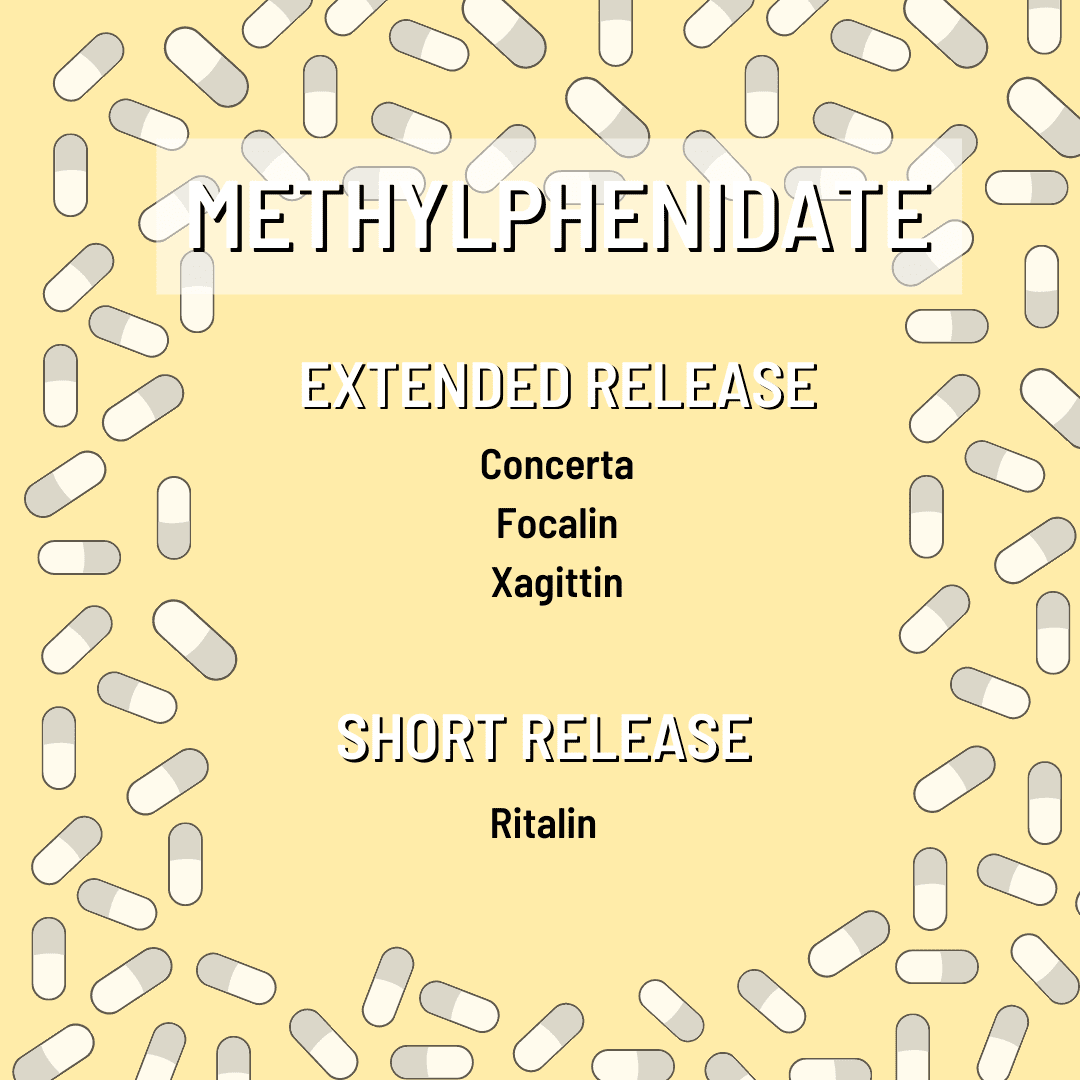
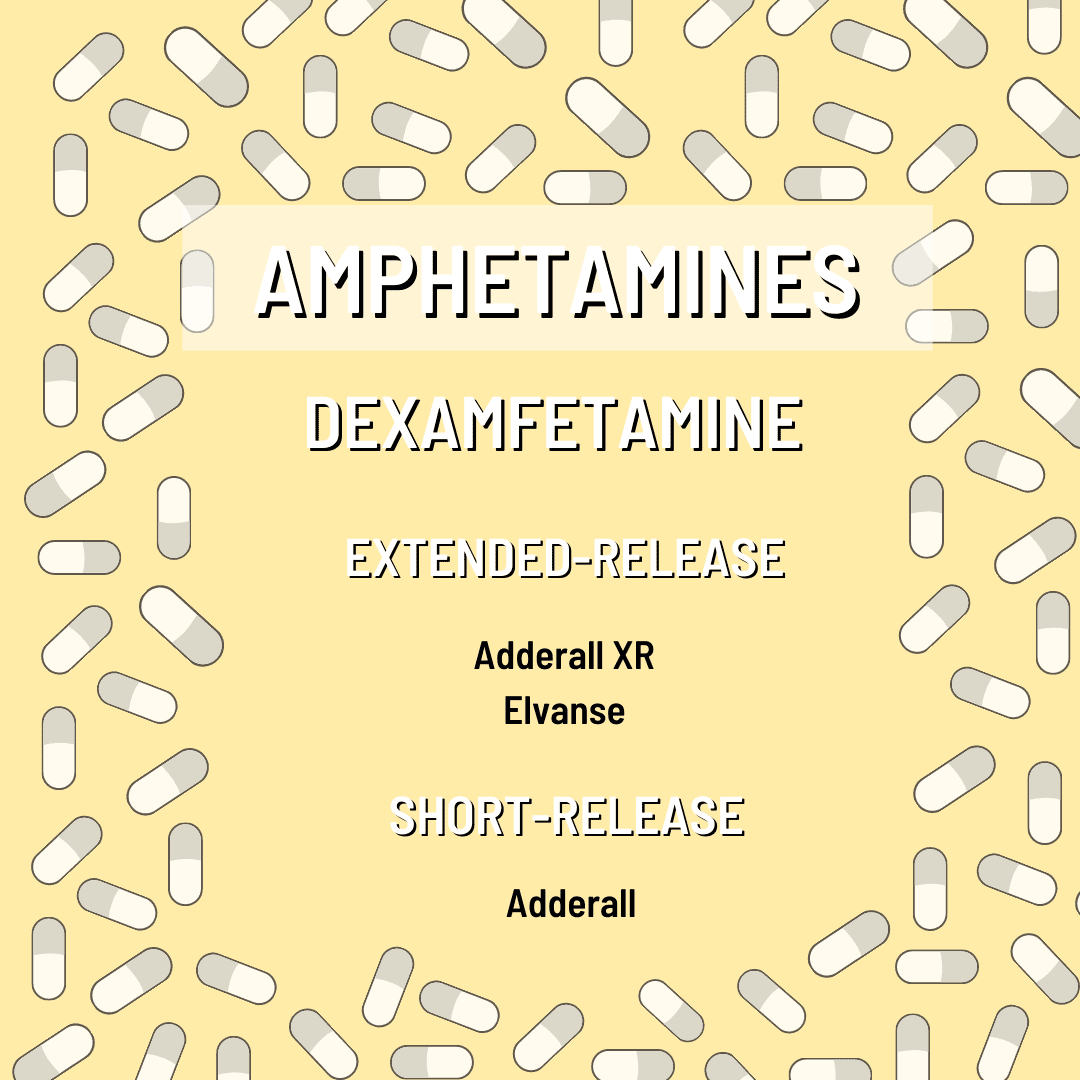

Amphetamines
Amphetamines are usually more commonly known as a drug of abuse – especially methamphetamine, which you may know as meth. However, some varieties of amphetamine are often used to treat ADHD.
Like methylphenidate, mphetamines also come in both extended-release and short-release formulations.
You will usually be offered amphetamine drugs if methylphenidate did not work for you, but you can ask to try these first.
The two amphetamines most commonly used to treat ADHD are lisdexamfetamine and dexamfetamine.
Some brand names you might hear that contain amphetamines are:
- Adderall (short-release; dexamfetamine)
- Adderall XR (extended-release; dexamfetamine)
- Vyvanse (extended-release; lisdexamfetamine)
- Elvanse (extended-release; dexamfetamine)
Non-Stimulant Medication
Non-stimulants are usually prescribed to those of us who don’t get on well with stimulants. This might be because of side-effects or other health conditions. They may also be prescribed alongside stimulants to ease side-effects. Non-stimulant drugs work in different ways.
The main non-stimulant drugs used to treat ADHD symptoms are:
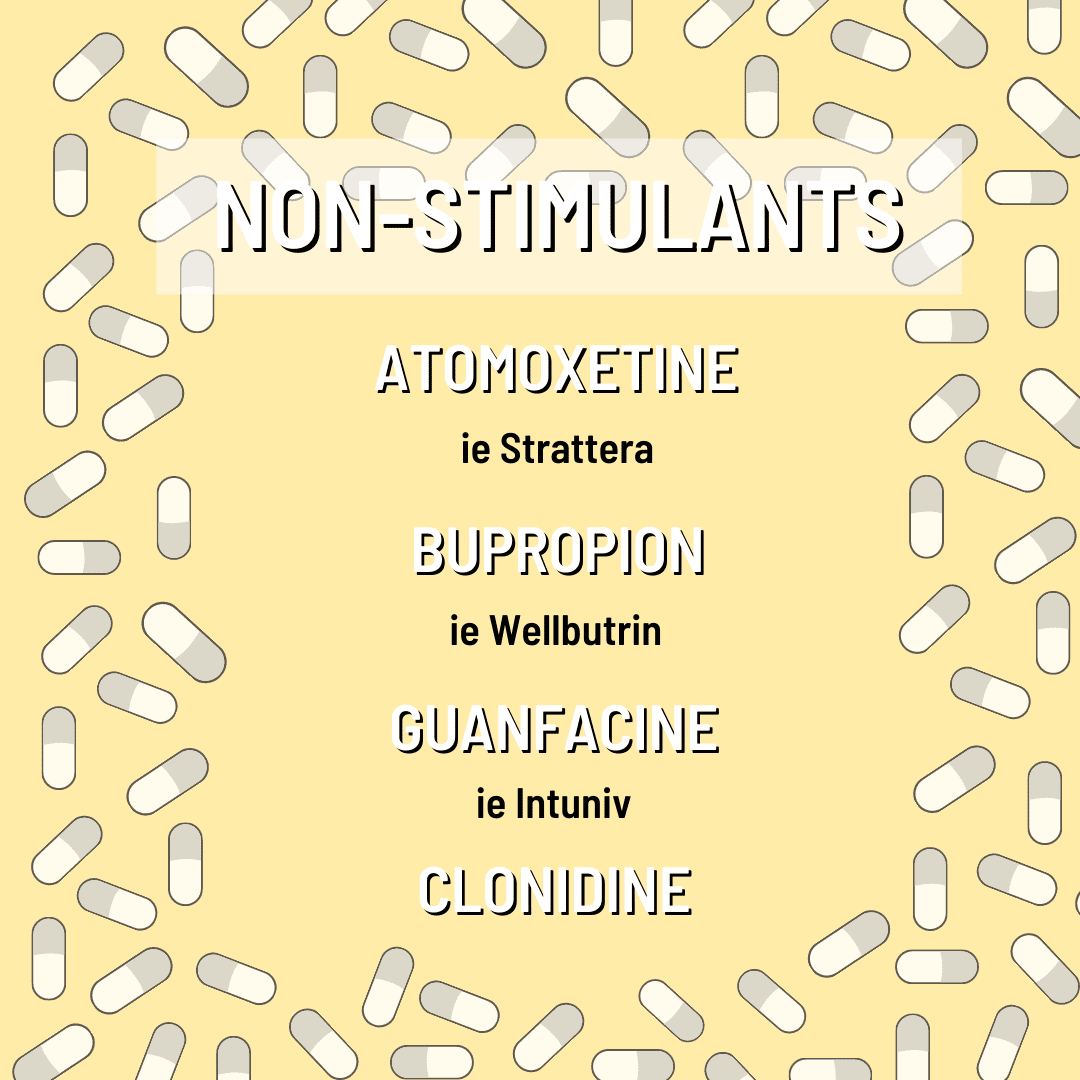
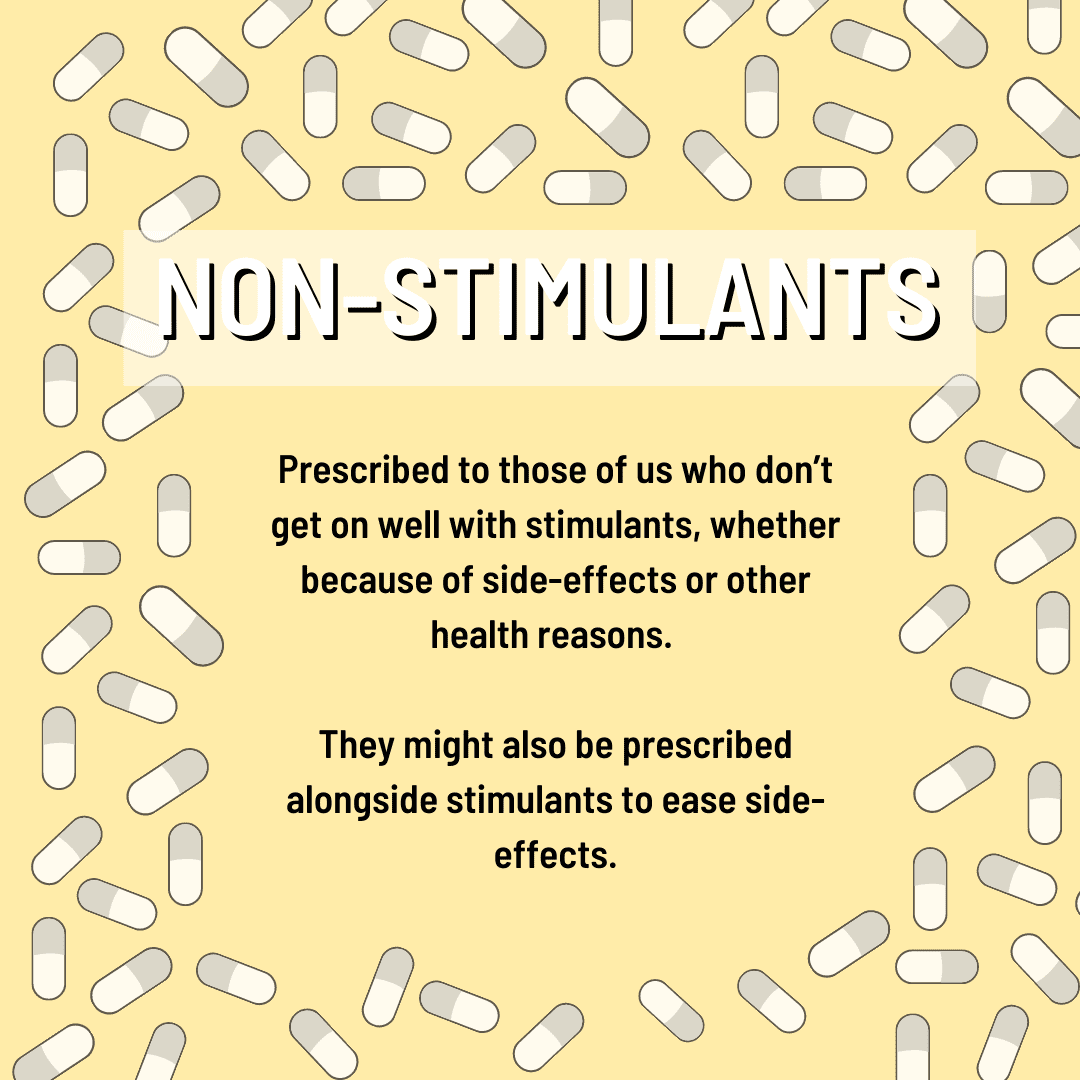
Atomoxetine
Atomoxetine is an selective noradrenaline reuptake inhibitor. This means that it increases noradrenaline levels in the brain – in a similar way to stimulants increasing the levels of dopamine.
It’s taken as a tablet, usually once or twice a day. It might be offered to you if you get bad side-effects from stimulants, or they just don’t work for you.
Stimulants work very quickly, but atomoxetine can take a few weeks to reach its full effects – so it’s important to still take it, even if you’re not sure it’s working.
The most common brand name for atomoxetine is Strattera.
Guanfacine
Guanfacine works by activating adrenoreceptors in your brain. Even though it’s not fully understood how this improves the symptoms of ADHD, it’s still a safe treatment. It isn’t a first-line medication, so is usually tried when you haven’t got on with the alternatives. It can also be taken alongside stimulants to manage side-effects.
Guanfacine can also lower your blood pressure, so it’s important to monitor this.
You might hear guanfacine referred to by the brand name Intuniv.
Clonidine
It’s also mostly unknown how clonidine, another blood pressure medication, improves the symptoms of ADHD. In the UK, short-release clonidine isn’t licensed to treat ADHD. This means it can still be prescribed, but it’s ‘off-label’ as it’s not for its usual specified purpose. Long-release clonidine isn’t licensed for any condition in the UK – so it can only be prescribed off-licence.
Clonidine therefore isn’t commonly prescribed for ADHD on the NHS, but it’s still an option, even if it’s more common in other countries.
Bupropion
Bupropion is an anti-depressant that some studies have shown can improve the symptoms of ADHD. It works by making it easier for noradrenaline and dopamine to work properly in the brain, by extending the amount of time they can interact with the receptors that control attention.
Like clonidine, bupropion is usually prescribed off-label.
You might hear it referred to by the brain name Wellbutrin. It also comes in an extended release version – Wellbutrin XL.
Other Medications for ADHD
I’ve talked about medications that are commonly prescribed to treat the symptoms of ADHD itself, but I feel that it’s important to talk about the fact that we might have to take other drugs as a consequence of our ADHD.
ADHD has many co-morbidities, including depression and anxiety.
The impact of ADHD, even now it’s diagnosed and treated with stimulants, has affected my self-esteem for many years. Combined with some upsetting events in my childhood, this is a recipe for less-than-perfect mental health. I’m not ashamed to admit that I have struggled with bouts of clinical depression, and a persistent anxiety disorder, for a decade now. I’m also not ashamed to admit that I take an anti-depressant for these conditions.
Psychiatric drugs are nothing to be embarrassed by.
I am now on a good combination of stimulants and anti-depressants – such a good combination, actually, that sometimes I wonder if this is what it feels like to be “normal”! When asked, I will usually say I take my sertraline for anxiety associated with my racing ADHD brain. This is maybe not the whole truth, but it’s a part of it – and it’s nothing to be embarassed about.
Taking medication for ADHD or a mental health condition is just as valid as taking medication for a thyroid or heart problem.
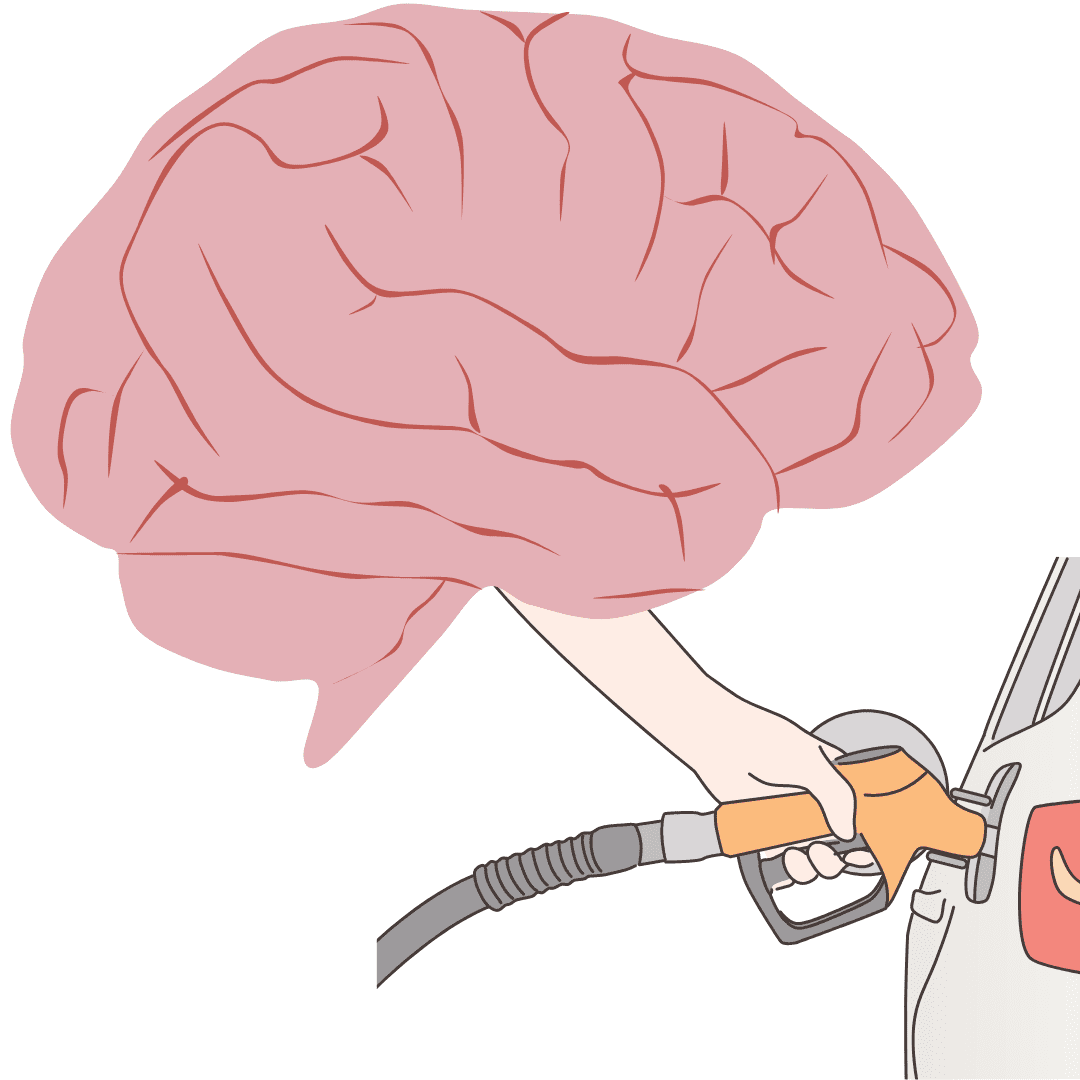
Side Effects of ADHD Medication
Like all medications, those for ADHD unfortunately often have side-effects.
For some people, they are a mild inconvenience. For others, they are so severe that you either have to change medication, take another one with it, or stop pharmaceutical treatment altogether.
You’ll be thirsty and your feet will tap like a Gene Kelly musical.
Your head might ache but you will have such clarity and drive that you’re likely not to notice.
Also, a small dose at night when your mind is restless, will counterintuitively help you sleep.
For stimulants, the most common side-effects are:
- Reduced appetite
- Stomach cramps
- Sleep disturbances (especially insomnia)
- Headaches
Medication Misconceptions
There is a common misconception, especially amongst parents, that ADHD medication will “turn you into a zombie”. Documentaries like Netflix’s Take Your Pills unhelpfully add to this scare-mongering.
Too high a dose of your medication might make you seem a bit spaced-out… but this just means your medication needs to be adjusted. Personally, I am a complete zombie without my medication – I get so overstimulated that I fall asleep several times a day, for several hours.
The most common side-effects associated with non-stimulant drugs are:
- Fatigue
- Stomach cramps
- Reduced appetite
- Nausea
In any case, you can always try the medication. If you don’t like how it makes you feel… you can stop taking it!
Some conspiracy theorists also believe that ADHD is a big hoax by “big pharma”, designed to medicate kids and adults into behaving the way society wants them to. This is, to be quite frank, also a load of rubbish.
It’s important to acknowledge that not everyone gets on with medication, but their story will always be their personal experience and not widely-generalisable fact. There is plenty of evidence to show that medication helps a lot of people with ADHD.
When researching your treatment options, please consult lots of different sources of information. Individuals with ADHD are a great resource, but remember their advice will largely be based on their personal opinion. Unlike scientific research, our personal experiences aren’t peer-reviewed evidence.
Other Resources for ADHD Medication
NHS ADHD Treatment – read here
Additude: ADHD Medications for Adults and Children – read here
WebMD: ADHD Medications and Side Effects – read here
How to ADHD: Why Stimulant Medication Helps ADHD, and How Stigma Can Hurt – watch here
Looking for other key knowledge about ADHD?
Have a look at our section with all the important info about ADHD as a clinical condition – from its diagnosis, to its treatment.
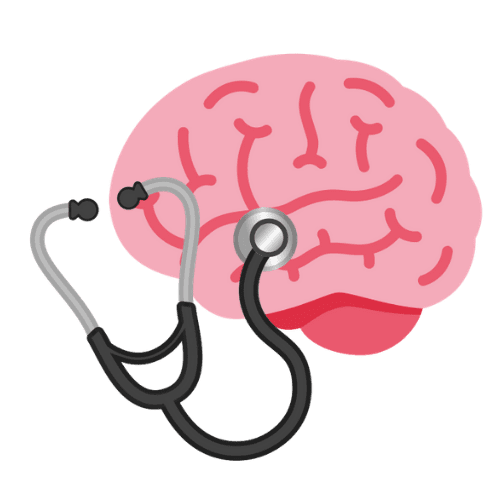
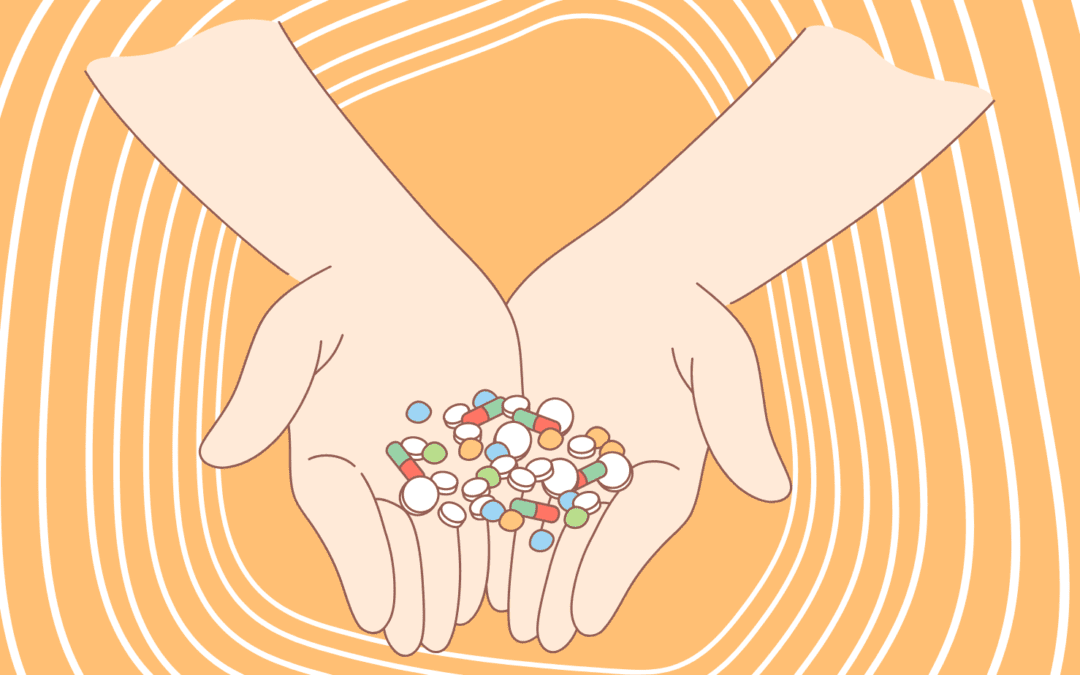
Hi I take methylphenidate xl 36mg it works well but I have severe RSD is there anything I can take in conjunction with it such as one of the alpha agonists you mention?
Hi, I can’t offer medical advice, but some drugs can be taken alongside stimulants to try and target the effects of RSD. These would need to be discussed with your specialist as they are often prescribed “off-label”.